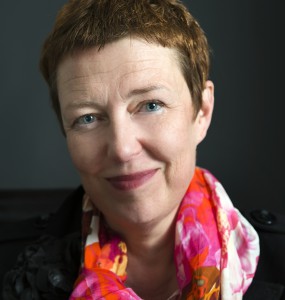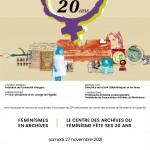
Photo of Christine Bard byLaurence Prat
Hello,
Welcome to my blog.
This is a personal platform which shares the main topics I deal with in my work, announcements, and my scientific and cultural interests.
I will use this space to inform you about my professional practice as a:
- Senior Lecturer in Contemporary History at the University of Angers, France, and member of the TEMOS laboratory (Time, Worlds, Societies) CNRS UMR 9016.
- A senior member of the Institut Universitaire de France.
- A manager of MUSEA, the Virtual Museum on the History of Women and Gender.
- President of the association Archives of feminism
- Copresident of AFeMuse, the Museum of Feminisms Association https://www.afemuse.fr/
Among other things
Enjoy your visit!
Christine Bard
You can contact me at the Faculty of Letters, Languages and Humanities
Maison de la Recherche Germaine Tillion
5 bis bd Lavoisier – 49045 Angers cedex 01
Send me an email: Christine.Bard@univ-angers.fr
Or find me on twitter : @Christine_Bard
As a researcher, senior lecturer, thesis supervisor, symposium organizer, facilitator of interdisciplinary structures and programmes, initiator of collective publications (Dictionary of Feminists, works), and archives director (“Archives of Feminism”), my work focuses on 5 main historical topics which often intersect: feminisms, anti-feminisms, dress codes, sexualities and archiving/museography. The question of gender is the common denominator, which is a way for me to highlight the political dimension of popular culture. My objects of research are varied, as are the sources I resort to (literature, images, archives, the press). I am also attentive to the way history is written and the relationship between history/memory/literature.
My initial specialization concerns the history of feminist movements in France and more generally, political history, the history of social movements, the history of women in politics. I have remained faithful to this subject, which I defend through the preservation and the valorization of feminist archives. I have also enriched the history of feminism through the study of its counter-movement: the history of antifeminisms and ideological opposition to gender equality. But in particular, I explored the cultural history of gender (social imaginary, material and symbolic culture) through studies on fashion, pants, the skirt, the language of appearances. I find myself more and more oriented towards the history of sexualities through the prism of gender, intimate life stories and literary works that have contributed to myths such as those of the New Woman etc.

